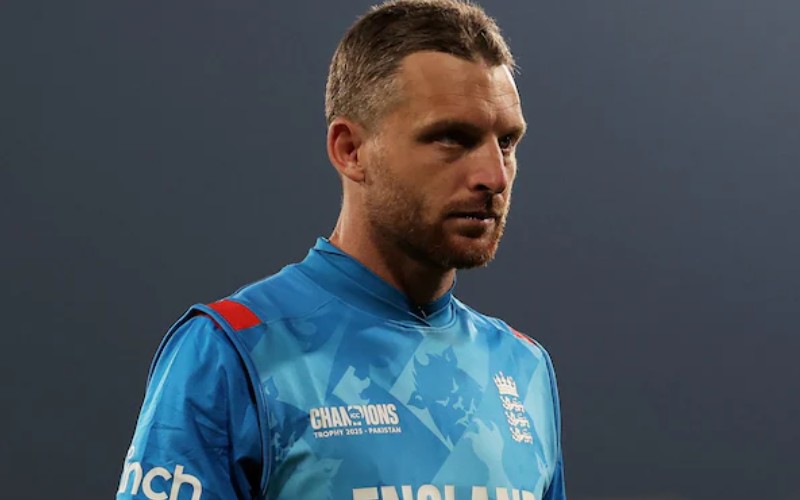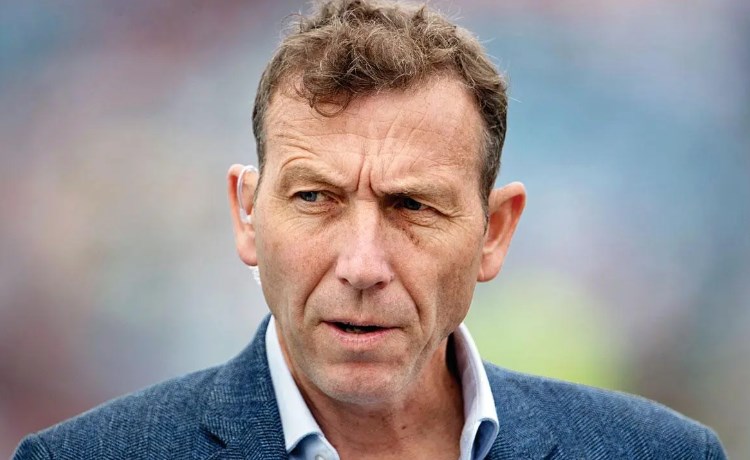Michael Atherton, the former England captain, believes Jos Buttler’s time as white-ball skipper is nearing its end following England’s shocking exit from the Champions Trophy. Despite Joe Root’s valiant 120 off 111 balls, England suffered an eight-run defeat to Afghanistan on Wednesday, sealing their early elimination from the tournament.

Speaking on Sky Sports, Michael Atherton was direct in his assessment: “I think his time is done as captain. England judge themselves on ICC events, and because they come so frequently now, they build towards these tournaments. Sometimes you just have to say it’s not working, and therefore, it’s time for a change. Deep down, he probably knows that.”
Nasser Hussain echoed similar concerns, questioning Buttler’s leadership presence.
ALSO READ: Kevin Pietersen Returns To Delhi Capitals As Mentor For IPL 2025
“I’ve never looked at Buttler and thought, ‘Wow, what a leader.’ He doesn’t command the field the way Eoin Morgan did. That’s a tough comparison because Morgan was England’s greatest-ever white-ball captain, but the reality is that Buttler hasn’t added much to this team as a skipper. Worse, it has affected his batting. When leadership neither strengthens the team nor allows a great player to flourish, it’s probably time to move on,” he added.

However, Michael Vaughan presented a different perspective, arguing that Buttler is being unfairly blamed for England’s deeper structural issues. Writing in The Telegraph, Vaughan acknowledged that Buttler’s tenure as captain is likely over but cautioned against seeing it as a fix-all solution.
He wrote: “Given he has been part of three failed ICC tournaments in a row, Jos Buttler will not survive as captain. But let’s not kid ourselves that changing the captain will suddenly fix everything. England’s problems run much deeper.”
ALSO READ: Shikhar Dhawan On Rohit Sharma’s Evolution: From Opening Partner To Resilient Captain
With England crashing out of yet another ICC event under Buttler’s leadership, the pressure for change is mounting. But the real question remains—would a new captain genuinely turn things around, or is England’s white-ball decline rooted in more fundamental issues?
